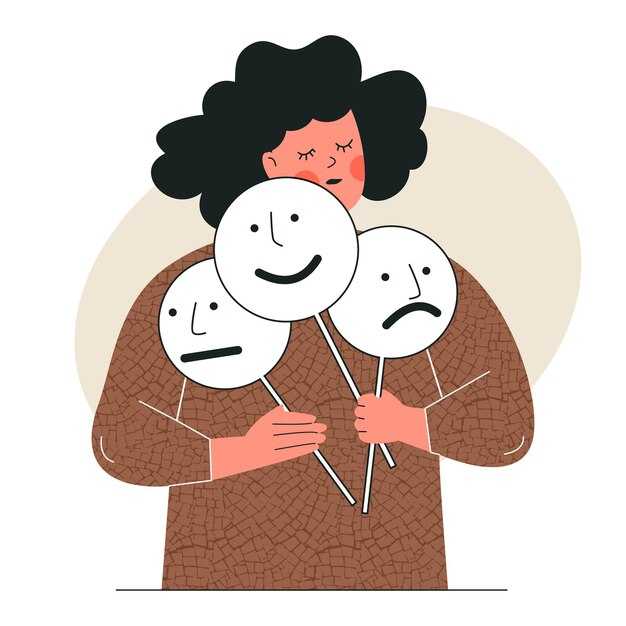Sexual involvement can cloud your judgment — especially for those who were neglected or abandoned as children. In the early phase of a new sexual or romantic connection, even with someone who seems decent, there is a real danger that your internal warning system switches off. If the person turns out to be harmful or toxic for you, it can happen quickly that you tolerate increasing mistreatment and end up blaming yourself instead. Do not trap yourself in a relationship with someone who is cruel, dismissive, controlling, or abusive. An attachment wound formed in childhood often coexists with a deep fear of abandonment, and together they can warp your thinking about leaving: they make escape from mistreatment feel impossible and can convince you that any amount of suffering is preferable to the pain of being left. Hear this clearly: when your thinking gets distorted in that way, it’s your trauma speaking.
Today’s letter comes from a woman who will be called Lola. She writes, “Dear Anna, I’m 58 and have CPTSD. I’m recently divorced after twenty years of marriage and I remain on good terms with my ex-husband, which is a blessing because we share a teenage daughter.” I’ve marked some passages I want to revisit, but first let’s look at what Lola is living through. She continues: “I also have Crohn’s disease and much of my energy goes into managing it. My CPTSD stems from being abandoned by my mother when I was three. I was raised by my grandmother and my father. Where am I now? My Crohn’s has left me with disabilities that complicate life, and my biggest struggle is an automatic tendency to blame myself for everything, even when I probably shouldn’t. Relationships are the hardest part of my life.”
Lola goes on to describe an intense attachment: two years ago she reconnected with the man she calls the love of her life — her first boyfriend, for whom she’d carried a torch for forty-five years. He was a wealthy, brilliant engineer, talented at almost anything. They drifted apart as they grew up and only reconnected through light contact on Facebook. After his wife of thirty years died of breast cancer, he began pursuing Lola just six weeks later. The courting was extreme; the “love bombing” was intense and she welcomed it. She divorced her husband and, despite misgivings, allowed the new pursuit to continue. He bought a house for her and her daughter to live in — but it was three and a half hours from the girl’s father, making visitation difficult. Soon, her daughter and ex-husband threatened court action so she could stay in the small town where she could finish school. Lola wanted to let her daughter remain, but staying would have meant sacrificing most of her relationship with the child. She couldn’t choose a boyfriend over her daughter, so she left the new house and returned to her previous home. Now the relationship had ended and she was devastated, having been obsessed with making it succeed. Too many obstacles stood in the way: his children weren’t ready to accept her and her daughter rejected him. The last day they were together was on a ski trip. Lola became incapacitated by altitude sickness; she could barely function. Her partner grew irritated, then angry that she was “ruining” his trip, and a drunken fight erupted. In a moment she later regretted, she packed her belongings and left him in Colorado, driving home alone. They had taken her car up to the resort. That was just over a year ago. Last week she learned he’s married again. She is stunned and heartbroken. Was she wrong to leave him behind? Did she misjudge the future of the relationship? She worried about his drinking and his need to control others. Because alcohol was a major factor in the collapse of her marriage, she had fixated on his drinking. She kept accommodating his schedule while asking little in return, and he thought she was unreasonable to be concerned. Her greatest torment now is how quickly he replaced her and remarried. She’s anxious, barely coping, and asks: was she wrong to leave? How can she forgive herself for her role in the breakup? She needs some genuine healing. Thank you, Lola.”
Here’s the tough but compassionate response you need. Many of us who were traumatized as children fall into a pattern of self-blame. We hold ourselves responsible for others’ harmful behavior because blaming ourselves feels like a way to take control — easier, somehow, than accepting that someone didn’t care for us. At the same time, it can be hard to face honestly where we made mistakes that hurt other people. That mixture of defensiveness, shame, and sincere regret is very common in complex situations like the one you describe. I’ll help you see what might have been within your power to change, what you can do differently going forward, and what isn’t your fault. I have a clear view on several parts of your story.
You spent twenty years in a marriage, you have a teenage daughter, and you manage Crohn’s disease — that’s a lot to handle. You were abandoned by your mother at age three, which is a devastating wound. Leaving a long marriage when you carry an abandonment wound can feel extremely destabilizing and lead to impulsive, odd choices. You named your primary struggle correctly: an automatic tendency to blame yourself. Trauma survivors often do this; taking blame becomes a way to feel some control when the truth — that someone else didn’t care — is too painful to hold. You also noted that relationships are your hardest area, and you’re far from alone.
When people speak of the “man of my dreams,” it’s wise to be cautious: idealizing someone can obscure real flaws. You described reconnecting with your first romantic partner and falling hard. Reengaging with someone from the past can be intoxicating, and when grief is present — as it was for him after a long marriage ended in death — people sometimes make impulsive attempts to replace what they lost. That impulsiveness is understandable but it can also be harmful to others. His intense pursuit and love bombing were major red flags; you could have chosen to slow things down or refuse that rush. You acknowledged allowing his pursuit, and it’s worth reflecting honestly on that pattern so you can learn from it rather than seeing yourself only as a hapless victim. At the same time, you were also ready to bolt from your previous life, so both of you were primed for impulsive choices that matched one another.
Buying a house to move you near him yet far from your daughter is manipulative. That act suggests someone shaping your life for his convenience rather than honoring what was best for you and your child. Pulling you away from where your daughter’s relationship with her father could continue showed a lack of regard for your family’s needs. Your daughter’s resistance to him was not surprising: children’s danger detectors often remain sharp, and a teenager’s desire to preserve stability and maintain contact with a parent is normal and vital. You made a courageous choice when you decided not to choose the boyfriend over your child — that was the right call. Returning to your former town and letting the relationship end was painful, but it prioritized your daughter’s well-being. Your anxious inner voice will say you should have given more of yourself to be acceptable to him, but the truth is that love doesn’t ask you to erase yourself or abandon your child. Love includes caring for what is best for the other person; a partner who truly loves you would consider your daughter’s needs.
If you found yourself obsessively trying to make the relationship work within a year of being together, that’s a strong signal the match wasn’t healthy. The pattern for many people wounded by early abandonment is to “crap fit” — to contort themselves to fit someone else’s desires in the hope of being loved. That impulse comes from childhood survival strategies, not from healthy adult partnership. When someone truly loves you, they stay through the hard times and accept you; you don’t have to become unrecognizable to be loved.
Alcohol played a role in both your first marriage and in this new relationship, and it’s reasonable to be vigilant about it. Part of relationship decision-making is weighing what problems you can live with and what problems are dealbreakers. That’s why dating slowly and testing compatibility over time matters: it gives you room to notice red flags and to see whether someone is fundamentally a safe and caring partner. People who weren’t traumatized tend to do that more naturally; those carrying abandonment wounds are more likely to leap quickly toward a new connection. Seeking support — which is what you did by writing in — is a wise, self-compassionate move.
Regarding children accepting a new partner: it’s very common for kids to react strongly when a parent starts a new relationship. Their grief and sense of loss can be intense. It’s possible for children to be unfair, but often their dislike signals something real. Co-parenting and the child’s need for a steady relationship with their other parent are crucial. As you heal, allow yourself to acknowledge the pain of having hurt others during this upheaval; take responsibility where it’s due and make amends where possible. That honest reckoning — “This is what I did, why I did it, and how I hurt you” — allows repair. It may not restore a first marriage to what it was, but it can preserve and strengthen the cooperative co-parenting relationship you now have, which benefits your daughter.
When speaking with your daughter, be mindful: she doesn’t need all the messy adult details, but she does need genuine honesty and accountability. You can say something like, “I made choices that caused pain. I’m sorry. I’m committed to taking care of you.” Kids sense when parents are evasive or pretending; that damages trust. You don’t have to defend the new man’s reputation to your child; protecting her relationship with her father and maintaining your own honesty is the priority.
About that ski trip: altitude sickness can be incapacitating, and being blamed or shamed for being ill — then having a partner pick a drunken fight — is emotionally abusive. Leaving that situation was a protective act. It was messy and imperfect, but sometimes escaping an unsafe environment requires quick, imperfect action. Packing your things and driving home may not have been elegant, but it kept you safe and ended a relationship that had many concerning signs. Feeling regret afterward is natural, but the fact that he remarried quickly doesn’t mean you did the wrong thing. If his drinking and controlling behavior were issues with you, they’re likely ongoing problems with his subsequent partner as well.
Now is a time to heal. Your priorities should include caring for your health, fostering a strong relationship with your daughter, and rebuilding stability in your life. When love comes again, let it be from someone who understands your Crohn’s, who can accept your bad days, and who embraces your daughter as part of the package. A healthy partner will move slowly into your life, not bulldoze it. Rushing into commitments often produces the kind of dramatic breakup you described; patience and time reveal whether someone is steady and compatible.
The house purchase that isolated you from your daughter and the drunkenness that led to the fight are important red flags. Staying with him might have meant repeated harm and chronic stress that would worsen your Crohn’s; you deserve steadiness, care, and someone who won’t make you feel like you must abandon yourself to be loved. Building a life with someone in midlife is complicated; both peoples’ histories and obligations make knitting two lives together a slow, deliberate process. Give yourself time. This period of being single can be a season of deep, necessary healing and growth. Your daughter will not be a teenager forever; being present for this phase of her life is a gift that you will never regret. Reinvest your energy into your relationship with her and into rebuilding a life with fewer dramas.
It’s reasonable for you to be highly attentive to drinking as a dealbreaker if alcohol has caused major harm in your relationships. Make that boundary explicit when you consider future partners. A useful practical step is to write lists: all the qualities you need in a partner and the behaviors you cannot accept. Many traumatized people aren’t clear about nonnegotiables until they write them down. For example, one absolute for some people is no partner with substance-abuse problems; another might be no entanglement with an ex. On the other side, list must-haves — someone who loves and supports you, who respects your routines and health practices, who will be a safe and positive presence for your child. A clear written list helps you notice early whether someone meets your needs or violates your boundaries.
There are helpful resources available: a short quiz that outlines signs that early trauma is affecting relationships and a PDF about common dating red flags can guide your reflection. These tools can help you recognize patterns and begin to change them. Also, leaning on friends matters: people with grounded friendships are less likely to make impulsive, high-drama choices because supportive friends help keep perspective and offer honest feedback.
A personal example: when deciding whom to date seriously again, it helped to insist that any future partner respect my daily practices and love my children. That clarity eventually led to a loving, steady partnership after several years of intentional, slow dating. Your standards can protect you and steer you toward someone right for the long haul.
In the short term, catalog the red flags you noticed but ignored and explore what you told yourself that made you override them. Understanding those moments will help prevent repeating the pattern. If you want, there are downloadable lists and resources — a free “signs that past trauma affects relationships” quiz and a “dating red flags” PDF — available in the links listed in the video description. They’re meant to be practical: keep them handy and use them as reminders to pause or to leave when necessary.
Please be gentle in the comments if you share thoughts about letters like Lola’s; people who write these stories are brave. If you’d like to send a letter to be considered, follow the clear guidelines and submission link in the description section. For now, Lola, please accept the wish for real healing: find yourself again, stop abandoning your needs, and trust that good things lie ahead. If this message was helpful, there’s another related video you might appreciate. You’re not meant to feel trapped or helpless in relationships — if it feels that way now, that’s a sign to shift course. [Music]


 Donnez-moi 36 minutes… Je vous épargnerai une vie entière de souffrances.">
Donnez-moi 36 minutes… Je vous épargnerai une vie entière de souffrances.">

 Do their feelings matter to you?">
Do their feelings matter to you?">
 Still Missing Them? These 5 Healing Steps Will Set You Free from the Avoidant’s Spell | Mel Robbins">
Still Missing Them? These 5 Healing Steps Will Set You Free from the Avoidant’s Spell | Mel Robbins">
 How to Break Free of ENTANGLEMENT With Exes">
How to Break Free of ENTANGLEMENT With Exes">
 The Hidden Pain of ADHD in Women No One Talks About">
The Hidden Pain of ADHD in Women No One Talks About">
 My Marriage DIED because I couldn’t Communicate!">
My Marriage DIED because I couldn’t Communicate!">



 Comment être un MARI EXCELLENT">
Comment être un MARI EXCELLENT">
 Je n'ai pas compris ma femme jusqu'à ce que je fasse ÇA">
Je n'ai pas compris ma femme jusqu'à ce que je fasse ÇA">